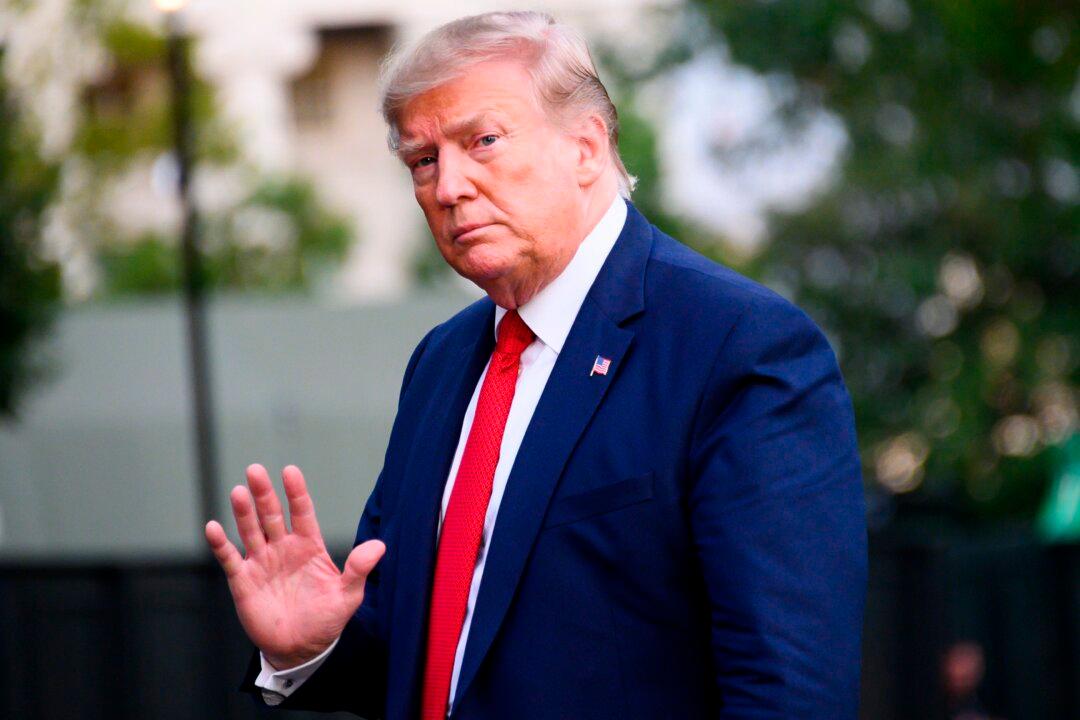President Donald Trump said that he was just having fun when he referred to himself as the “chosen one” in the backdrop of the ongoing trade war with China.
“When I looked up to the sky and jokingly said ‘I am the chosen one,’ at a press conference two days ago, referring to taking on Trade with China, little did I realize that the media would claim that I had a ‘Messiah complex,’” Trump said in an Aug. 24 tweet. “They knew I was kidding, being sarcastic, and just having fun,” he continued.





